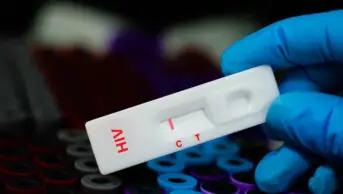Pharmacy teams play pivotal roles in prevention and health promotion and the Institute for Health Promotion and Education (IHPE) has just launched a position statement to draw attention to some of the current and future challenges. Many of these public health issues are preventable, yet continue to influence morbidity, premature mortality and health inequalities. The statement discusses UK and worldwide roles for pharmacy teams.
The initial impetus for our statement was that our members were very concerned about recent announcements being made by a senior public figure about sharing leftover antibiotics. Like many other professionals, our members were keen to increase awareness of the potential immediate dangers to the health of individuals, the legalities and the long-term consequences in relation to treatment resistant infections.
However, we did want our statement to be positive and to highlight the crucial roles that pharmacy teams have in promoting health[1,2]. For example, community pharmacy teams have a long and excellent track record of delivering health promoting interventions with evidence of efficacy, which is strongest for smoking cessation, disease screening and preventive activities, provision of emergency hormonal contraceptive and vaccination services.
Speaking at the Royal Pharmaceutical Society (RPS) conference in London on 11 November 2022, Sir Michael Marmot highlighted the Marmot Principles, all of which pharmacists are ideally placed to help implement. In particular to “strengthen the role and impact of ill-health prevention”.
Also speaking at the conference, Claire Anderson, president of the RPS, emphasised the role that pharmacy has in “protecting the health of the public” and the importance of placing “equality and wellbeing in the heart of health policy”. These are central principles of the IHPE and the organisation is actively supportive of the pharmacy profession in continuing to develop this role.
Pharmacy teams could and should be encouraged to undertake far more work in relation to health promotion, although additional resources will be needed. We really should be maximising our use of this prominent social and health asset within all communities.
World Antimicrobial Awareness Week, from 18–24 November 2022, is one that IHPE will be supporting as individuals and families still need reminding about:
- Conditions for which antibiotics are not appropriate;
- The importance of taking antibiotics as prescribed and completing the course;
- Not saving antibiotics for later, or sharing with others;
- Pharmacy ‘antibiotic amnesty’ campaigns to remove unused antibiotics from circulation.
A worldwide significant issue that was featured in the statement was substandard and falsified medical products. This has public health and socioeconomic impacts. For example, low- and middle-income countries spend an estimated US$30.5bn on substandard and falsified medicines, accounting for 10.5% of medicines in these countries[3]. Further work is needed to identify and develop appropriate strategies to understand and address the distribution and supply of substandard and falsified medical products throughout the world.
The statement also drew attention to the important part that pharmacy teams play in accident prevention. Issues such as safe storage of medicines, capacity to drive and balance linked to falls were all highlighted. Pharmacy teams help to prevent accidents throughout the life course: supporting, for example, parents with small children and older people.
An innovative idea that was briefly mentioned in the statement was the Health Promoting Pharmacy[1]. This is based on the World Health Organization’s ‘Ottawa Charter for Health Promotion‘ and would be considered a gold standard. Potentially it would provide benefits for patients, customers, staff and community members, but rigorous pilot evaluations are needed to ascertain the exact health benefits.
Pharmacy teams working in all settings have important roles to play in prevention and embedding health promotion practice in their everyday roles. IHPE strongly believes that prioritising prevention and health promotion will reduce NHS costs and contribute to a more sustainable use of medicines.
Michael Craig Watson and Karen E Neil are both trustees of the Institute for Health Promotion and Education
- 1Watson MC. Public Health Issues in Prescribing. In: Lymn J, Bowskill D, Bath-Haxtell F, et al., eds. The New Prescriber: An Integrated Approach to Medical and Non-Medical Prescribing. London: : Wiley Blackwell 2010.
- 2Pharmacy has an important part to play in health promotion. Pharmaceutical Journal. 2022. doi:10.1211/pj.2022.1.144079
- 3The WHO Member State Mechanism on Substandard and Falsified Medical Products. World Health Organization. 2020.https://www.who.int/publications/i/item/WHO-MVP-EMP-SAV-2019.04 (accessed Nov 2022).

